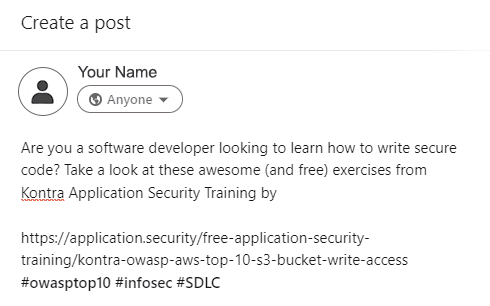One area that has seen a recent shift in its definition is experiential intelligence. America once revered high IQs and having one was perceived as the only way to be successful. If a person did not have well-honed reasoning and problem-solving skills, they were made to feel as if they were not as valuable as their high-IQ peers.
Defining intelligence
The definition of intelligence is constantly changing. What was once considered intelligent may now be seen as average and vice versa. This is especially true in America, where the perception of intelligence is constantly evolving. The world has finally opened up to people who have different types of intelligence that can be their avenue to success. There is no definite way to measure a person’s intelligence.
Gardner’s Seven Intelligences
The theory of Gardner’s seven intelligences is one of the most popular and widely-used educational intelligence models out there. The popularity of this intelligence model is due to its simple yet powerful premise: different kinds of intelligence exist, and we all have a unique blend of these intelligences.
On the surface, this idea seems like common sense, and in some ways that’s what makes it so appealing. It suggests that we are all equal in terms of our ability to learn and succeed, regardless of what kind of intelligence we possess.
Gardner’s seven intelligences offer a much-needed balance between acknowledging the beauty in our differences and also fostering an understanding that everyone has areas where they need to improve. Whether you agree with his ideas or not, there’s no denying how influential they have been over the years — and how likely they are to continue shaping educational thinking for years to come.
Intelligence has been traditionally measured in terms of intelligence quotient (IQ). A test is given to measure the test taker’s cognitive abilities and potential for intellectual achievement.
IQ tests are often used as a way to measure a person’s intelligence. They have been popular for generations because they are so easy to administer and score. At one point, they were considered the definitive way to select people for jobs or educational opportunities.
There are a number of problems with this approach. Firstly, IQ tests only measure certain cognitive abilities. Also, they do not take into account other important aspects of intelligence, such as emotional intelligence or social intelligence.
IQ scores can vary depending on a number of factors, such as motivation and test-taking anxiety. These scores say nothing about a person’s potential. Just because someone has a low IQ score does not mean that they cannot be successful in life.
Emotional intelligence
In recent years, emotional intelligence (EQ) has gotten the recognition it deserves. Emotional intelligence is the ability to effectively navigate and understand emotions. It involves being aware of your own emotions and the emotions of others and knowing how to manage them in a constructive way.
People with high EQ are better able to manage stress, solve problems, and relate to others. They are also more likely to be successful in both their personal and professional lives. We love emotional intelligence so much because it’s widely recognized that people with strong emotional intelligence skills are more successful in life. They’re better able to manage stress, relate to others, and solve problems.
The best way to enhance EQ is to harness the power of empathy. Some examples include reading stories to connect to others, volunteering with those less fortunate, and building active listening skills by listening to understand without interrupting.
Experiential intelligence
There is another form of intelligence that is equally important but often overlooked: experiential intelligence. Experiential intelligence (XQ) is the ability to effectively navigate and harness one’s own life experiences. It involves understanding and making use of both the positive and negative aspects of those experiences.
People with high XQ are able to learn from their mistakes and build on their successes. They are also better able to deal with stress and setbacks, with a greater understanding of how to cope with difficult situations. There are many ways to develop and improve one’s XQ. One of the most effective is to simply keep a journal. Writing about your experiences, both good and bad, can help you to better understand them and learn from them.
It can also be helpful to talk to others who have gone through similar experiences. This can provide valuable insights and perspectives that you may not have considered before. XQ is not static. Just as your IQ can change over time, so too can your XQ. By making an effort to continuously learn and grow, you can ensure that your XQ remains high, no matter what life throws your way. So if you want to be successful in life, don’t forget to tap into your experiential intelligence. It may just be the key to unlocking your full potential.
How to improve your XQ
Experiential intelligence is a combination of mindset, abilities and resilience. More specifically, beliefs about yourself and others, your ability to integrate old and new knowledge to respond to situations effectively, and real-time know-how. Going beyond IQ and EQ, XQ is a latent intelligence that comes from living life.
- Get curious about traditional success. Make a list of past wins — big or small. Successes are not glitches or coincidences and reflecting on these wins gives credit to our unique mindsets, abilities, and know-how. Success can beget success if we study our wins and learn from our past.
- Reimagine failings. Failure is a part of life. It happens to everyone at least once. If we reframe failure as an opportunity to expand, we can soar to new heights. Explore which mindsets, abilities and knowledge you wished you had before your perceived mistakes. Breakdowns can be transformed into breakthroughs.
- Leave your comfort zone. The pursuit of new and diverse experiences adds new stories and fresh perspectives. The future of defining intelligence will incorporate a growth mindset. This means that intelligence is not fixed, rather it can be improved with dedicated effort over time.
Thus, experiential intelligence is not only about understanding and making use of life experiences, but also about continuously learning and growing from those experiences. Studying intelligence can be difficult, as there is no one-size-fits-all method to becoming smarter. However, by understanding the importance of experiential intelligence and making an effort to improve it, you can set yourself up for success in all areas of life.
An emerging field of intelligence includes technology, and ThriveDX can help you upskill with classes taught by leaders in every facet of cybersecurity.


